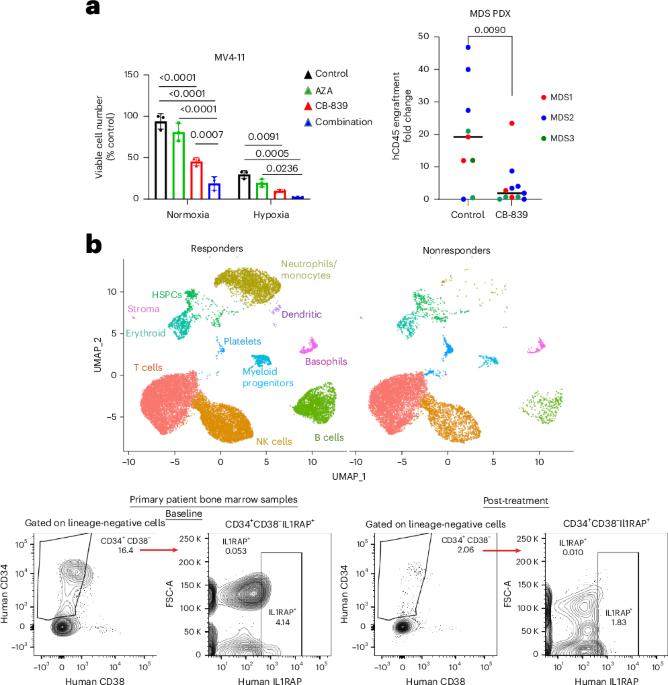泰拉格司他和氮杂胞苷共同靶向 MDS 的代谢和表观遗传学。
IF 23.5
1区 医学
Q1 ONCOLOGY
引用次数: 0
摘要
氮杂胞苷被用作骨髓增生异常综合征(MDS)的标准治疗方法,但尽管它能诱导反应,缓解却很少且不持久。在骨髓增生异常综合症患者中,恶性细胞依赖谷氨酰胺生存,并表现出谷氨酰胺酶水平的升高,而谷氨酰胺酶是谷氨酰胺代谢的必需酶。我们的临床前和临床研究结果表明,谷氨酰胺酶抑制剂泰拉格司他与氮杂胞苷联合治疗晚期MDS是有效的。本文章由计算机程序翻译,如有差异,请以英文原文为准。

Co-targeting metabolism and epigenetics in MDS with telaglenastat and azacytidine
Azacytidine is used as standard treatment for myelodysplastic syndrome (MDS) but, although it induces responses, remissions are rare and not durable. In patients with MDS, malignant cells rely on glutamine for survival and exhibit elevated levels of glutaminase, an essential enzyme for glutamine metabolism. Our results from preclinical and clinical studies demonstrate the effectiveness of combining the glutaminase inhibitor telaglenastat with azacytidine in advanced MDS.
求助全文
通过发布文献求助,成功后即可免费获取论文全文。
去求助
来源期刊

Nature cancer
Medicine-Oncology
CiteScore
31.10
自引率
1.80%
发文量
129
期刊介绍:
Cancer is a devastating disease responsible for millions of deaths worldwide. However, many of these deaths could be prevented with improved prevention and treatment strategies. To achieve this, it is crucial to focus on accurate diagnosis, effective treatment methods, and understanding the socioeconomic factors that influence cancer rates.
Nature Cancer aims to serve as a unique platform for sharing the latest advancements in cancer research across various scientific fields, encompassing life sciences, physical sciences, applied sciences, and social sciences. The journal is particularly interested in fundamental research that enhances our understanding of tumor development and progression, as well as research that translates this knowledge into clinical applications through innovative diagnostic and therapeutic approaches. Additionally, Nature Cancer welcomes clinical studies that inform cancer diagnosis, treatment, and prevention, along with contributions exploring the societal impact of cancer on a global scale.
In addition to publishing original research, Nature Cancer will feature Comments, Reviews, News & Views, Features, and Correspondence that hold significant value for the diverse field of cancer research.
 求助内容:
求助内容: 应助结果提醒方式:
应助结果提醒方式:


